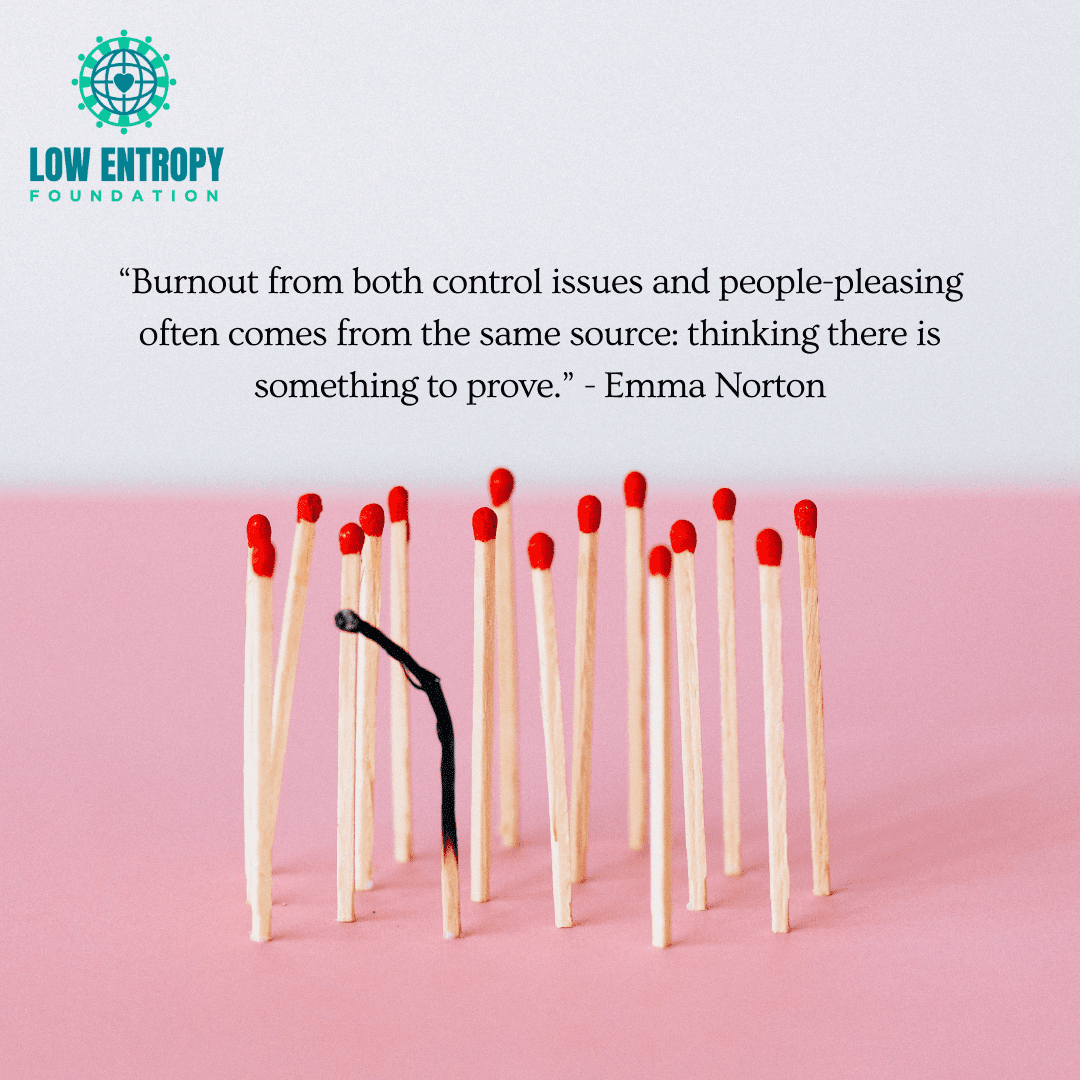It’s analysis paralysis – if you’re all about ideas, overthinking can create a logjam that stalls your best intentions, leading to burnout. Low Entropy Volunteer Writer Emma Norton explores how we can process those ruminating thoughts in healthy ways, to get you back up and running.
Burnout is a state of emotional, physical and mental exhaustion caused by excessive and prolonged stress. Our modern society is all about goal-oriented hustling to achieve some sense of status. Confronted with overwhelming pressures – whether external or self-imposed – we create an unhealthy dynamic for ourselves.
Regardless of how you experience burnout or where it is derived from, you can trace its roots back to your neural wiring. How do you handle stress, and what triggers it for you?
In my experience, I have always been a highly creative person: I generate ideas. I also, as a positive, can be organized and complete tasks. But I often felt overwhelmed, taking on duties that weighed me down simply because I was capable. Working on multiple projects at once or being a support for others going through hard times, I got used to going through a burnout cycle. Recently, as I have been working to streamline my life in many ways, I acknowledged that the stress I was feeling came from a key factor: I have often had a hard time turning thoughts into action.
Why? I’m all about the ideas. I can connect things and find the reasoning in most scenarios well beyond anyone else. If you spark my creativity, I can come up with a multitude of magical concepts for you. But in the excitement, my to-do list builds up so quickly that I ruminate on its items instead of crossing them off.
I experience burnout because I have the inspiration to do all these great things, but the overwhelm comes from thinking I have to do everything independently. As an independent worker, I feel like I have to do everything myself. This comes from a mistrust in others built up over the years, as well as a lack of boundaries when it comes to taking more on than necessary. Burnout from both control issues and people-pleasing often comes from the same source: thinking there is something to prove. It comes from the worry of letting others down or being pressured to perform beyond your current capacity. I can look back to these experiences as great lessons that helped me level up and prove myself. But the real lesson was that my opinion was the only one that truly mattered in the end.
I have been reviewing the idea of turning thoughts into action as I have realized the mental stress that I impose upon myself instead of chipping away at that to-do list. Here are some tools I have been implementing with great success lately:
Join a Networking Group
This is not just for professionals: if you are a new parent who is feeling burnt out or a student feeling overwhelmed, there are community-minded groups to participate in. Find something relatable to your scenario. Just talking with others helps, as does being open to their perspectives. It can also help you realize you are not alone, and from a professional standpoint, you may very well find others with whom you can collaborate.
Exercise
I often exercise to the point of burnout, but I also manage the other stressors in my life during these sessions. When running, for example, I can take a lot of those ideas swirling around in my head and give them (literal) legs. Taking this time to connect my mind and body helps me refocus and get out of my head. I always prioritize exercise within my schedule because it is such a valuable outlet for me and my pent-up energy.
Have Your Non-Negotiables
Depending on whether you are a disciplined, routine-oriented person or a free-flowing, take-life-as-it-comes kind of person (I fall somewhere in the middle), have your non-negotiables. Taking a break from the ruminating thoughts and redirecting your focus to a non-negotiable activity or practice for some time (even if it is a planned time in your schedule) is crucial.
Pick three non-negotiables you have to incorporate into your day/week/month. These are your actions. These are the movements that you can use to ground your thoughts. For me, it’s running, painting and giving myself manicure/pedicures. The latter also conveniently supports the first two! As you can see, my list includes physical activity, creativity and self-care, all of which I can redirect my thoughts into. Try this for yourself!
What are your three non-negotiables? Is your favourite one “reading the Low Entropy blog?” Sure it is! Let us know your other two in the comments below or on any of our social media channels!

